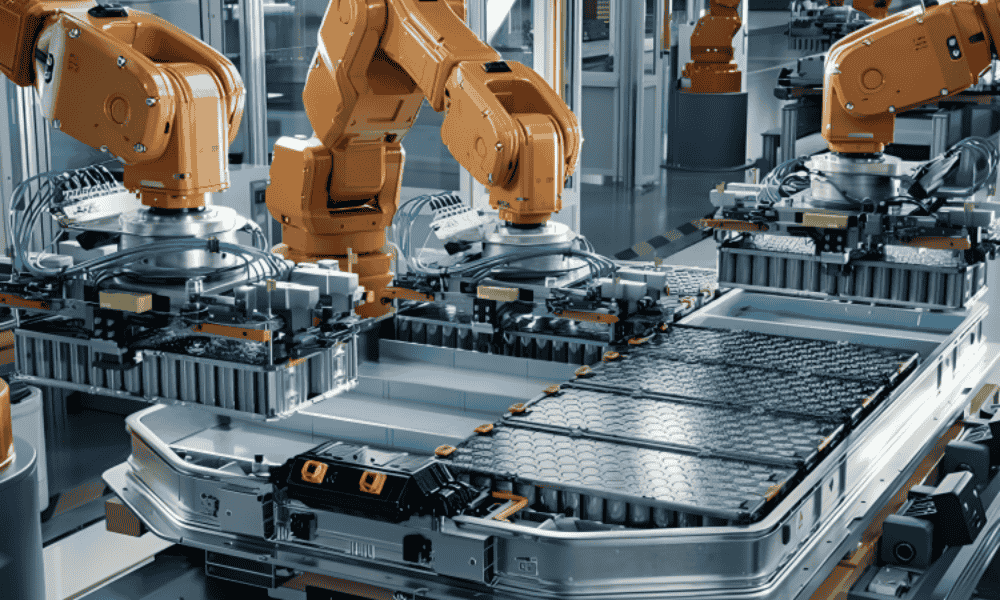In the ever-evolving industrial landscape, precision and efficiency are non-negotiable. From robotics to assembly lines, the quality and accuracy of manufactured parts define performance. That’s where automation equipment cnc parts play a critical role. Designed for high-accuracy tasks across various sectors, CNC-machined parts serve as the foundation for seamless automation. Whether it’s improving throughput, ensuring repeatability, or reducing downtime, these components power smart manufacturing at every level.
Understanding CNC Machining in Automation
CNC (Computer Numerical Control) machining involves the automated control of machining tools such as lathes, mills, routers, and grinders by means of a computer. When applied to automation equipment, CNC parts offer unparalleled reliability, consistency, and dimensional precision, which are all vital in systems that require minimal human intervention.
The fusion of CNC technology with automation systems results in enhanced productivity and consistent part quality—key drivers in today’s Industry 4.0 era.
Why CNC Machined Parts Are Crucial in Automation Equipment
Automation relies on the synchronization of countless components. Even a small misalignment or tolerance error can cause system-wide inefficiencies or breakdowns. CNC parts mitigate these risks due to:
-
Tight Tolerances: CNC machining delivers tolerances within microns, essential for parts interacting with sensors, actuators, and robotic arms.
-
Material Flexibility: Whether aluminum, stainless steel, or engineering plastics, CNC machines can work with a wide range of materials suited to specific automation environments.
-
High Repeatability: CNC systems can produce thousands of identical parts, ensuring uniformity across large-scale equipment.
-
Reduced Human Error: Once programmed, CNC machines follow instructions exactly, leading to consistent, high-quality production.
Common CNC Parts in Automation Equipment
CNC-machined parts are integrated into automation systems across various industrial applications. Key examples include:
-
Robotic Joint Components: High-precision pivot points or gears for robotic movement.
-
Linear Motion Shafts: Used in pick-and-place systems or packaging machines.
-
Control Housing Enclosures: Protective casings for sensors and electronics.
-
Mounting Brackets and Frames: Structural supports that hold automation units in place.
-
Tooling Fixtures: Custom jigs and fixtures that enhance the function of robotic tools.
Each of these parts must meet high standards for strength, wear resistance, and fitment.
Applications Across Diverse Industries
The influence of CNC-machined parts extends far beyond factory floors. Here are several industries where automation equipment CNC parts are indispensable:
-
Automotive: Robotic arms equipped with CNC components handle everything from welding to painting.
-
Medical Device Manufacturing: High-precision parts are used in machines that assemble surgical tools or diagnostic equipment.
-
Electronics: SMT (Surface Mount Technology) placement systems require ultra-precise CNC fixtures.
-
Food and Beverage: Packaging, filling, and labeling machines utilize CNC-machined mechanical supports.
-
Aerospace: Ground support equipment and robotic assembly arms depend on exact tolerances for safety-critical components.
Benefits of Investing in CNC Machined Automation Components
Manufacturers and systems integrators gain several advantages by using CNC machined parts for automation purposes:
-
Improved Performance and Speed: With precision parts, automation systems operate faster and more efficiently.
-
Lower Maintenance Costs: High-quality components reduce wear and tear, minimizing maintenance downtime.
-
Customizability: CNC machining allows for fully tailored parts to fit unique automation layouts or functions.
-
Scalability: Need to produce 10,000 identical parts? CNC machines make it possible with unmatched accuracy.
-
Compliance and Safety: CNC components meet rigorous industry regulations for quality assurance and worker safety.
Key Considerations When Choosing CNC Parts for Automation Equipment
To maximize value, engineers and procurement teams should assess:
-
Design Compatibility: Ensure CNC parts align with the automation system’s design tolerances and motion range.
-
Material Selection: Choose materials based on factors like heat resistance, weight, and durability.
-
Surface Finish Requirements: Some automation parts require specific finishes to minimize friction or enhance conductivity.
-
Supplier Expertise: Work with CNC providers experienced in automation applications, like MYT Machining, to ensure reliability and support.
The MYT Machining Advantage
When it comes to sourcing CNC parts for automation, MYT Machining stands out as a trusted industry leader. With decades of experience, they provide:
-
Precision parts tailored for complex automation systems
-
Quick turnaround and scalable production
-
In-depth knowledge of industry-specific challenges
-
Quality control processes that guarantee consistency
Their ability to collaborate with engineers and manufacturers ensures every component is built to meet exacting standards, regardless of the project’s complexity.
Future Trends: CNC Machining Meets Smart Automation
As AI and IoT technologies reshape industrial automation, CNC machining is evolving to meet new demands. Future developments include:
-
Smart CNC Machines: Equipped with sensors to self-monitor tool wear and performance.
-
Rapid Prototyping for Automation: Faster delivery of precision components to reduce system development time.
-
Sustainable Manufacturing: Improved energy efficiency and reduced waste in CNC processes.
-
Collaborative Robotics (Cobots): CNC components will be central to lightweight, human-safe automation equipment.
By aligning with these trends, manufacturers can stay competitive while boosting efficiency and innovation.
Conclusion: Empowering Innovation Through Precision
In an increasingly automated world, the value of precision-crafted components cannot be overstated. Automation equipment CNC parts form the backbone of countless industrial systems, enabling manufacturers to scale with confidence, reduce costs, and push the boundaries of what’s possible. Companies that invest in quality CNC machining not only future-proof their operations but also unlock new levels of performance and reliability.









